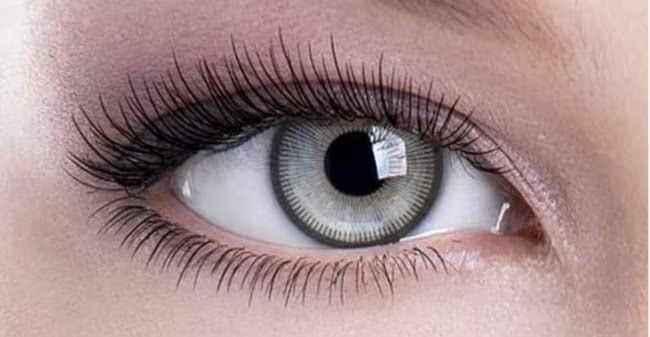The Human Obsession With Rarity

Humans are obsessed with rarity, and I want to explore why. But before we get too far, let’s look at some examples.
Only 1% of people have grey eyes.
Platinum vs. Copper
People over 7 feet tall
Grey, green, and blue eyes
Limited edition sports cars
Millionaires
Haley’s comet
The Crown Jewels
Solar Eclipses
4-leaf Clovers (those might not exist, haven’t checked)
Some of these are rare in occurrence, i.e., low in number, and others are rare in time—meaning they show up infrequently and/or there’s a limited window in which to enjoy them.
Both are examples of rarity.
You could also have zero interest in a video on your shelf, but watch the same movie if it’s on TV.
Evidently I’ve been on about this for a long time, because here’s what I noticed about TV in 1997.
Why is it that nothing at all is of interest when you have 40 channels of T.V. in perfect clarity, yet when your cable goes out and you only have one channel full of static, your attention is riveted regardless of what’s playing?
I know the answer. We want what we can’t have and we lose interest in anything we possess completely. You’d be very surprised at how many things in life this applies to.
We Want What’s Transient, Daniel Miessler, February 1997 >
We Want What’s Transient, Daniel Miessler, February 1997 >I think the reason for this comes directly from evolution.
Evolution is always looking for markers of winning, and it rewards people when they acquire them.
If everyone in your band of fighters has bronze weapons, and you have an iron one, you’re winning. If your whole basketball team is 5’8″ to 5’11", the team that gets the new guy who’s 6’6″ is winning.
But this is conflating things a bit, because tall people are good for basketball. Same with beauty or money or anything else that’s widely considered positive for a given situation.
Where it gets strange is when something might only be considered better because it’s rare.
I was looking at birds by the San Francisco Bay the other day, and I saw a seagull. I thought to myself, wow—that’s a pretty cool bird! It’s big, it’s white, with some decent coloring, and it’s just kind of awesome.
But then I remembered it was a seagull. Yuck. Flying rats. I immediately started looking for a more interesting bird, i.e., a less common one.
What else does this apply to? Pretty much everything, I think.
Imagine how amazing a kitty cat would be if there were only 10 of them in the world, and they were owned by the richest people on the planet.
And how lame would diamonds be if they were actually very common? Ha! Exactly. That’s why they’re getting so much cheaper: the charade of preciousness has ended.
I think the ultimate example of this is what we do every day, and the pandemic has illustrated this.
Flying. Checking into hotels. Rude people in movie theaters.
Remember when we used to complain about not being able to hear someone in a bar? How glorious was that? So many people in one place, having a good time, that you couldn’t even hear yourself.
It’s a kind of heaven.
But let’s take it even further. Deeper down.
You wake up in the morning. There is coffee. Maybe you have a partner, who is doing the same, and preparing for the day. And you’re together.
Or even better, at a deeper level…
You wake up, you open your eyes, and there is light. There is coffee. There is the internet where you can find peepholes into people sharing positivity.
And finally, you are conscious.
It’s just you. And if you quiet your mind you can see consciousness playing like a movie. You hear your heart. You feel it. You can feel vibrations as you move your limbs. You can hear every little sound if you pay close enough attention.
Being conscious is a gift. It’s wonderful. All by itself.
But consciousness is the ultimate seagull.
Sure, it’d be cool if it was the only one in the world. Or if you had just survived a near-miss with cancer.
But it’s hard to see our consciousness as a peregrine falcon instead of a seagull. It’s not natural.
In fact, our default state is to automatically take inventory of every single thing around us and immediately rank it by rarity—and therefore value.
I’m conscious all day? Lame.
I can experience mindfulness whenever I want? Wow, super dumb.
One of the Kardashians has a new purse that the designer made just for her? Wow! Impressive!
And as conditions change, evolution monitors the situation and adjusts what you value.
In a post-apocalyptic world (sorry, too early) it won’t be designer purses that excite people—it’ll be the ability to create fire.
Anyway, I think one of the most powerful lessons someone can learn is that evolution is hacking our reward system at every moment, and we have the ability to hack back.
Mindfulness is such a hack.
It allows us to assign extreme value to the present, and to the everyday inputs that we’re exposed to.
Sun, coffee, smiles, and the voice of a friend—despite their availability—really are the ultimate experiences in life.
Don’t let evolution trick you into believing they’re seagulls.